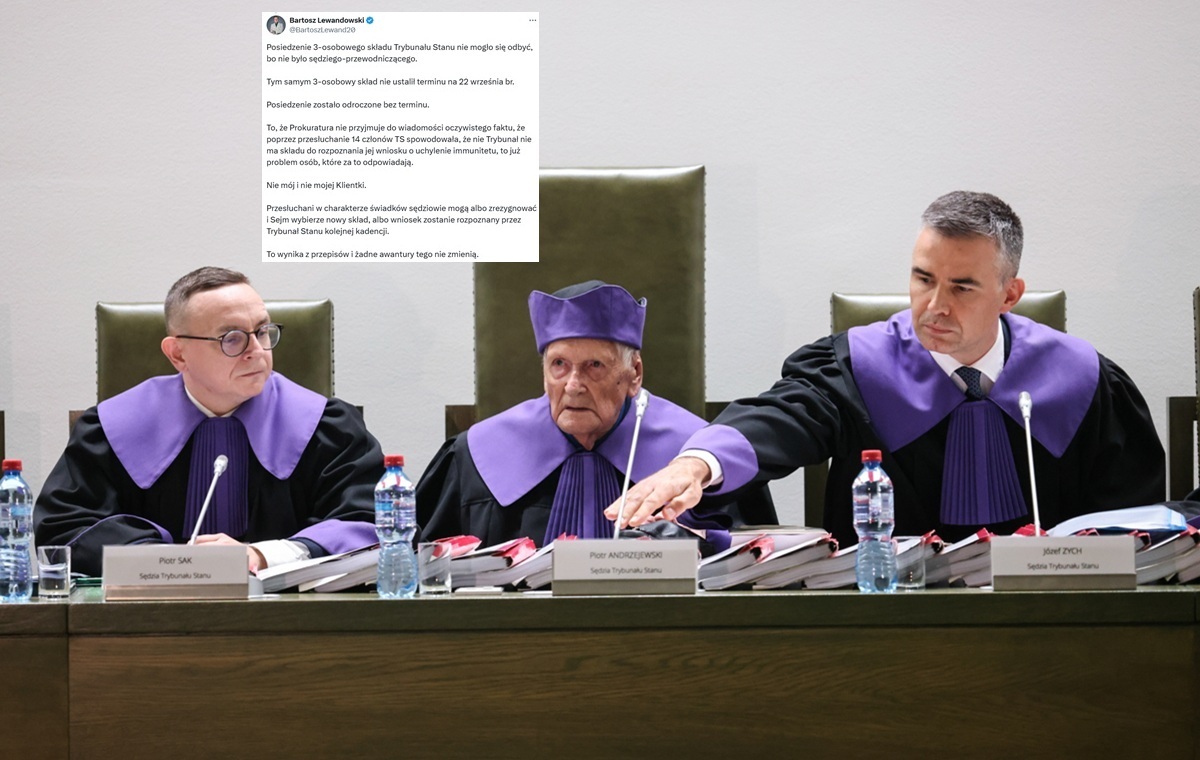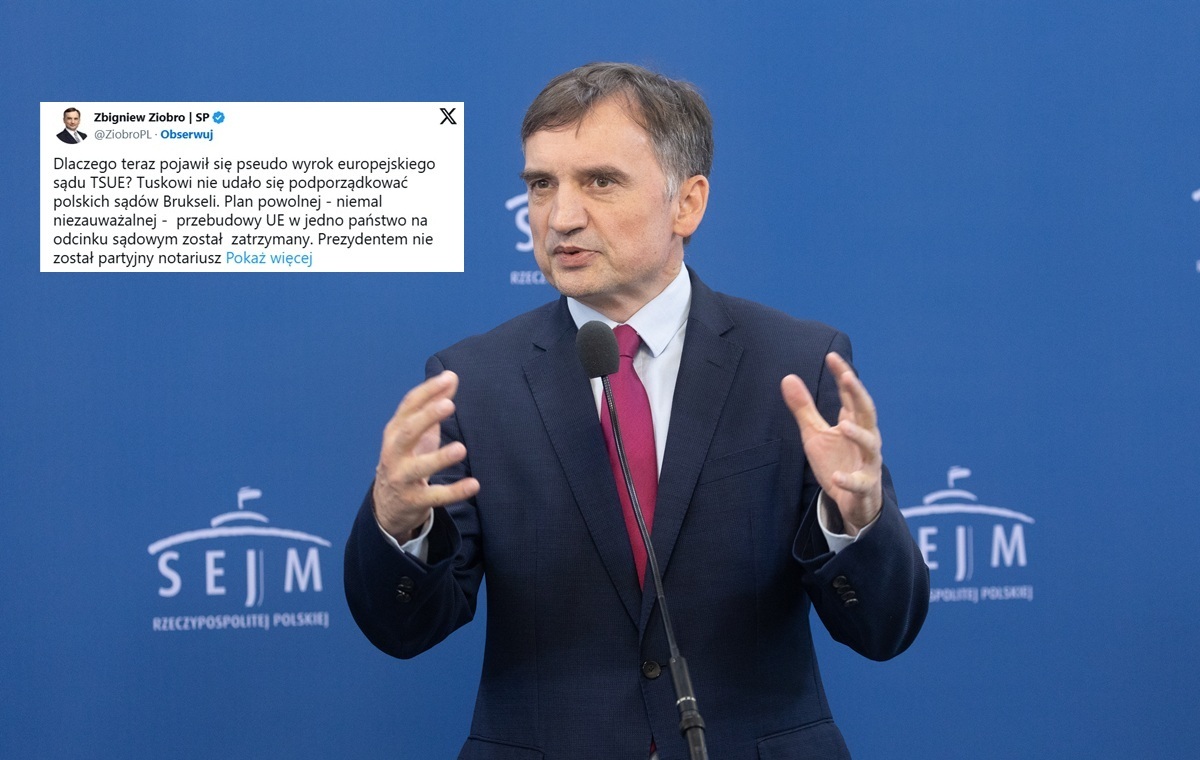Civil evidence is essential to establish essential facts that may affect the final result of the court
Civil evidence as the basis for the ruling
The correct resolution of each case shall be subject to the fulfilment by the court of the 2 chief procedural obligations, i.e. the conduct of evidence proceedings in accordance with the provisions of the Code of civilian Procedure and the carrying out of a comprehensive assessment of the full circumstances disclosed during the proceedings. This solution should besides be supported by substantive law adequate to the facts.
This is besides the case in the Court of First Instance’s interior review of the contested decision, which is intended to find whether, in the case at issue, the Court of First Instance has complied with those requirements (yes: judgement of the Court of Appeal of Gdańsk of 8 December 2016, Ref. Act III AUa 1198/16).
Subject substance of proof
According to Article 227 of the Code, the facts applicable for resolving the case are the subject of evidence.
Definition of an crucial fact in the case
What facts (circumstances) request to be clarified is the substantive law that should be applied in the case in question (yes: ultimate Court ruling of 30 August 1990, IV CR 236/90, OSNCP 1991, No 10-12, item 125); cf. ultimate Court judgement of 27 January 2011, I CSK 237/10, LEX No 784978 and ultimate Court order of 10 February 2012, II CSK 357/11, LEX No 1133804.
Since the assessment of the ‘substantiality’ of the fact must be made from the point of view of material law, so the facts of crucial importance, the facts described in the hypotheses of substantive civilian law, little frequently the procedural law (yes: ultimate Court in its judgement of 4 March 2008, Ref. Act III UK 65/07).
Civil evidence — court’s acceptance of the party’s application
Material law has been said to find which evidence is applicable in a court case and how applicable it is for its resolution. Those provisions set out the scope of the essential factual arrangements to be made. The request for the Court of First Instance to grant evidence must so be based on the legal basis of the claim (yes: ultimate Court judgement of 4 March 2008, III UK 65/07, and the judgement of the Court of Appeal of Gdańsk of 6 November 2013, Ref. Act III AUa 1219/12).
The Court of First Instance’s acceptance of the party’s application for evidence is besides linked to the factual basis for the action (Article 187(1)). In order to justify the action, the plaintiff subjectively determines the facts of the case. The facts cited by the plaintiff should have legal meaning. The Court of First Instance shall choice the facts, taking into account the rule of material fact and the rule of adversariality. They will then be the subject of evidence if they concern circumstances which, from the point of view of material law, are essential to the result of the case.
Civil evidence – subject of assessment
The assessment of the evidence involves examining it and deciding whether the facts on which the legal effects are derived have been demonstrated. The intent of the court is to make certain factual findings, whether affirmative or negative, and final determination of the facts on which the decision is based (yes: ultimate Court judgement of 24 October 2003, II CK 75/02).
The Court of First Instance’s assessment of the correctness of the evidence
Only if there is no logic in binding applications to the evidence collected, or if the application of the Court of First Instance goes beyond the formal logic scheme, or, contrary to the principles of life experience, does not take into account clear applicable causally-effectual relationships, can the Court of First Instance’s assessment of the evidence be effectively contested (yes: judgement of the Court of Appeal in Poznań, I ACa 513/05, LEX No 186115).
Civil evidence and the rule of free assessment
According to Article 233(1) of the General Court, the Court assesses the reliability and power of evidence according to its own conviction, on the basis of a comprehensive consideration of the material collected, taking into account the rule of free assessment of evidence.
The free assessment of the evidence is made by the prism of the court's own beliefs, cognition and life experience, taking into account the requirements of procedural law and the logic of reasoning that the court is impartially, rationally and comprehensively considering the evidence as a whole, choosing certain means of evidence and, weighing their power and reliability, referring to the remaining evidence (yes: judgement of the Court of Appeal of 6 November 2013, Ref. Act III AUa 1219/12).
An crucial feature of the free assessment of evidence is their impartial assessment (e.g. K. Piasecki, in: Code of civilian Procedure. Commentary on Articles 1 – 505 14 , under ed. K. Piaseckiego, Warsaw 2006, Vol. I, p. 1026).
Limits for the free assessment of evidence by the court
Judgment of 10 June 1999, II UKN 685/98, OSNAPiUS 2000, No. 17, item 655 indicated that the limits of the free assessment of evidence set in particular:
- the work for the court to draw reasonable conclusions from the evidence collected,
- the procedural framework (assessment of evidence must respect the conditions laid down by procedural law, in peculiar Articles 227-234 k.p.c.),
- the level of legal awareness of the justice and
- dominant views on the judicial application of the law.
The allegation of breaching the free assessment of evidence by the court
The infringement of Article 233(1) of the General Court, which expresses the rule of the free assessment of evidence, could only happen if the applicant had demonstrated a breach of the basic principles for assessing the reliability and power of the individual evidence, i.e. the principles of logical thinking, the rule of experience in life and the appropriate association of facts (yes: ultimate Court judgement of 16 December 2005, III CK 314/05).
Until the applicant demonstrates crucial errors of logical reasoning, of conflicting assessment with life experience, of deficiency of versatility, or of unwarranted omission of evidence leading to different conclusions, the Court of First Instance cannot be considered to have infringed the rule of free assessment of evidence.
However, it is not adequate for the court to state the plea of infringement of the rule of free assessment of evidence that the party’s opinion of a different weight (of significance) and their different assessment than that of the court (yes: judgement of the ultimate Court: 5 August 1999, II UKN 76/99, publ. OSNAPiUS 2000, No. 19, item 732; of 10 April 2000, V CKN 17/2000, publ. OSNC 2000, No. 10, item 189; of 10 January 2002, II CKN 572/99, publ. LEX No. 53136; of 27 September 2002, II CKN 817/00, publ. LEX No. 56096) is not sufficient.
Civil evidence and multiple interpretations
If the court has drawn conclusions logically correct and consistent with the principles of life experience from a peculiar evidence, specified an assessment of evidence shall not prejudice the rule of free assessment of evidence provided for in Article 233 of the Code of Conduct, even if it is proven that the same material could be drawn equally logical and consistent with the principles of life experience.
Only if it is demonstrated that there is no link, in the light of the criteria mentioned above, of the conclusions received with the evidence collected, can it be effectively challenged to measure the evidence made by the court. There is not adequate ground for argument alone, but an indication is required of the deficiency of logic or deficiency of experience in accepting the contested applications (yes: ultimate Court judgement of 29 September 2005, act No. II PK 34/05).
Civil evidence – Comprehensive consideration by the court
Article 233. § 1 kpc, in addition to the expression of the rule of free assessment of evidence, besides states that the court should consider the collected evidence comprehensively.
Comprehensive consideration of the evidence collected means that the court takes into account all the evidence carried out in the proceedings and all the circumstances accompanying the conduct of the individual evidence measures applicable to their power and reliability (so: W. Siedlecki, Implementation of the rule of free assessment of evidence in the Polish civilian process, NP 1966, No. 4, p. 20).
Burden of proof in civilian proceedings
Evidence on civilian matters is governed by Article 6 of the civilian Code, which provides that the burden of proving the fact rests with the individual who has legal effects.
What the organization should prove in accordance with Article 6 k.c. in a circumstantial process is primarily the subject substance of the dispute, substantive law governing certain legal relations and procedural law standardising the principles of evidence. On the another hand, what is the subject of the dispute is referred to by the plaintiff in the application against the defendant, quoting the facts justifying it (Article 187 §1 of the Code).
The burden of proof in civilian proceedings is usually due to flooding. As a general rule, he should prove the facts which form his substantive right as the origin of the claims and the facts justifying his answer to the defendant’s allegations, while the suspect should prove the facts justifying his allegations against the plaintiff’s claim — the facts which are intruding and nullifying (judgment of 20 December 2006, IV CSK 299/06, publ. LEX No 233051; of 29 September 2005, III CK 11/05, publ. LEX No 1870030).
The burden of proof rules are of a warrant nature, indicating the organization who will endure the adverse consequences of failing to prove the facts applicable for the resolution (yes: judgement of the fresh Sącz territory Court of 10 October 2018, Ref. Act III Ca 262/18).
Civil evidence and the action of a court of its own motion
It follows from Article 232 of the EC Treaty that it is the parties, not the court, that they should supply material to make the factual findings from which the legal effects derive. The court is not liable for the result of the trial (yes: judgement of the ultimate Court of 7 October 1998, II UKN 244/98, publ. OSNAPiUS 1999, No. 20, item 662).
It is besides not for the court to manage the investigation in order to supplement or clarify the parties’ claims and to detect evidence allowing them to be proved, nor is the court obliged to carry out ex officio evidence to clarify the circumstances applicable to the result of the case (yes: judgement of the ultimate Court of 17 December 1996, I Cku 45/96, OSNC 1997, No 6-7, item 76).
As the ultimate Court expressly stressed in its judgement of 17 December 1996, I CCU 45/96, publ. OSNC 1997/67/76, the court does not search to be a organization to the evidence it has not indicated to prove its claims.
The action of the General Court may, of its own motion, infringe the right to an impartial Court and the corresponding work to respect the rule of equal treatment of the parties as described in Articles 32(1) and 45(1) of the Constitution of the Republic (yes: judgement of the ultimate Court of 12 December 2000, V CKN 175/00 with the approval of Mr Broniewicz, publ. OS 2001/7/8/116 C).
The parties’ claims a evidence in civilian matters
In civilian proceedings, the determination of facts takes place in rule after the conduct of the evidence procedure, and the evidence is the subject of facts applicable for the resolution of the case (Article 227 of the Code). The parties’ claims, cited in the minutes of the proceeding or in the pleadings, do not constitute evidence (yes: judgement of the Lublin territory Court of 31 May 2016, Ref. Act II Ca 94/16).
Determination of facts without the request for evidence
By way of exception to the principle, the facts in civilian proceedings may be established without the request for evidence. This is possible in cases clearly indicated in the civilian Procedure Code:
- do not require evidence of facts commonly known (Article 228(1) of the Code),
- do not require evidence of facts known to the court officially (Article 228(2) of the Code),
- do not require evidence of facts granted in the course of the proceedings by the opposing party, where the award is not in uncertainty (Article 229 of the Code),
- where the organization fails to comment on the opposing party's claims, the court may, having respect to the result of the full hearing, consider the facts to be granted (Article 230 of the Rules of Procedure),
- the court may consider the facts applicable for the result of the case to be established if specified a conclusion can be derived from another facts established (presence of fact) (Article 231 k.p.c.),
- the court is bound by legal presumptions; however, it may be overturned whenever the law does not exclude it (Article 234 of the Code).
In the above-mentioned cases, the uncovering of the fact in the process may take place in a different way than on the basis of evidence (yes: judgement of the Lublin territory Court of 31 May 2016, Ref. Act II Ca 94/16).
Presumption in civilian proceedings
The provision of Article 231 k.p.c. indicates that the Court of First Instance may consider facts applicable for the result of the case to be established if specified a conclusion can be derived from another facts established (presence of fact).
The application of the factual presumption should take place in judicial proceedings where there are no direct evidence or there are crucial evidence obstacles to proving the fact, and at the same time its determination is possible by applying rules of logical reasoning taking into account the principles of cognition and experience of life (yes: judgement of the ultimate Court of 2 December 2010, I CSK 11/10, publ. LEX No 737365, judgement of the ultimate Court of 19 February 2002, IV CKN 718/00, publ. LEX No 54362, justification of judgement of 11 December 2007, I PK 157/07, publ. OSNP 2009, No 3-4, item 33, judgement of the SA of 7 September 2012, I ACa 145/12, publ. LEX No 123876).
The court ruling can so be based on a factual presumption (Article 231 of the Code) only if that presumption constitutes a logical conclusion resulting from correctly established facts constituting its premises (judgment of 22 January 1998, II UKN 465/97, publ. OSNP 1999 No 1, item 24).
The content of the presumption of fact is to recognise as an existing circumstantial fact the relation between another established facts and courts of those facts. It is possible to apply the factual presumption if there are no another competing hypotheses for the presumption and the conclusion is not questionable due to carefully collected evidence.
Security of evidence
Before initiating proceedings on request and in the course of the proceedings besides of an ex officio nature, evidence may be secured where there is simply a concern that it will become impracticable or besides difficult, or where for another reasons there is simply a request to establish an existing state of affairs.
An application for proof safety shall be lodged in the court competent to examine the case and, in cases of urgency or where the proceedings have not yet been initiated, in the territory court in which the evidence is to be carried out.
The court calls on curious parties to supply evidence; however, in cases of urgency, the taking of evidence may be initiated even before the announcement of the opponent is served.
Civil evidence by the appeal court
First, it is the work of the second instance court to make factual findings. In view of the content of Article 382 kpc, the second instance court shall decide on the basis of the material collected in the first instance and in the appeal proceedings. The Court of Appeal may, therefore, and in fact and under the work of the Court of First Instance to make its own findings if the Court of First Instance makes incomplete or incorrect or irrelevant.
The Court of Appeal, in its own case, is to use, in principle, the evidence collected in the proceedings before the Court of First Instance. In ruling, the appeal court must base its ruling on its own findings, which does not, in any event, interfere with the rule of instance, as it besides assesses the material collected in the first instance proceedings in conjunction with certain appeals, making only remedying the errors of the first instance court in accordance with the general principles of civilian proceedings (yes: ultimate Court judgement of 5 December 2014 III CSK 362/13).
Acceptance of evidence by the court of first instance as its own
If the appeal court decides on the basis of evidence collected at first instance and approves the existing findings, it does not gotta repeat them (yes: order of the ultimate Court of 26 April 2007, II CSK 18/07, Lex No 966804; judgement of the ultimate Court of 13 December 1935, C III 680/34. ECR 1936, item 379, of 14 February 1938, C II 21172/37, Judicial Review 1938, item 380 and of 19 November 1998, III CKN 792/98, OSNC 1999, No 4, item 83; ultimate Court judgement of 9 March 2006, I CSK 147/05).
However, the condition here is that the content of the findings of the first instance should be contrary to the result of the evidence procedure based on a comprehensive assessment of the evidence gathered which does not have the characteristics of freedom.
Late evidence in civilian case - Evidence preclusion
The request to take into account the rules on the burden of proof in the assessment of the probative preclusion has been brought to the attention by the ultimate Court in the explanatory memorandum of 12 May 2006, Case V CSK 55/06, LEX No 200875, explaining that it is not possible for the plaintiff to submit evidence in the application that would precede the defendant's possible defence and thus force him to anticipate what defence the suspect will take and what evidence already submitted in the suit could destruct that defence.
However, the plaintiff is required to submit only those claims and applicable evidence to show his claim, but it cannot be expected that these are claims and evidence that supply for the defence of the suspect and his position as to the evidence provided by the plaintiff.
A akin position with respect to the institution of the burden of proof was besides taken by the ultimate Court in its judgement of 18.04.2008, II CSK 667/07, LEX No. 398415, in the context of Article 479 12 , explaining that the message of evidence cannot be understood as an work to mention in the application besides those claims and evidence which, in fact, are already known to the plaintiff, but which would aim to show that the claim specified in the application does not belong to him or that he cannot get it (so: the territory Court of Gdańsk in its judgement of 3 April 2023. Act No XII Ga 856/22 ).
Elements of the evidence request
The evidentiary conclusion should indicate the parties’ claims on facts to be demonstrated by concrete evidence. The court cannot deal with the search for evidence for the organization and the search for facts which may justify the request made in the application.
Types of evidence in civilian proceedings
The provisions of the civilian Procedure Code do not, in principle, restrict the kind of evidence that may be carried out in civilian proceedings. As regards the taking of evidence by means another than those expressly mentioned in the Code, Article 309 kpc provides that the manner in which specified evidence is to be carried out shall be determined by the court in accordance with their nature, applying the provisions of the evidence envisaged accordingly.
The civilian evidence in the Codex is, among others, evidence from a document, evidence from witnesses, Expert opinion, an inspection.
Evidence from the civilian case file
Regional Court in Łódź in judgement of 24 July 2014 concluded that the application for the authorisation of “file evidence” was incorrect and would consequently be rejected. The application of evidence should concern the possible admission of evidence from papers (or evidence referred to in Article 308 of the Code), in turn the file of the case should only be indicated as the place where the papers are located and from where they can be obtained in the originals or copies (video Articles 250 §1 and 2 of the Code).










